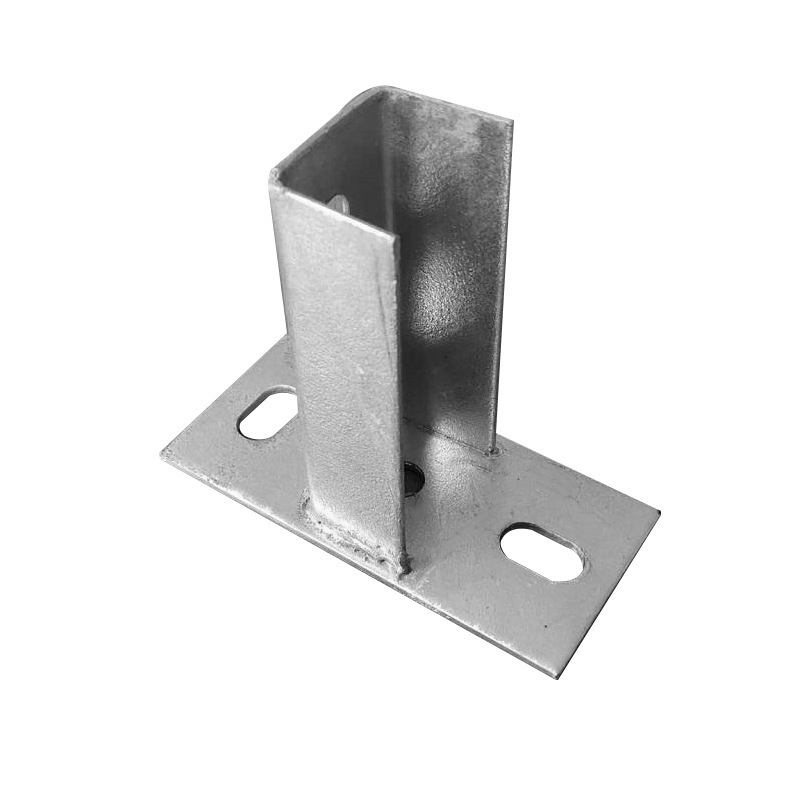

flat washer types
Dec . 13, 2024 14:50 Back to list
flat washer types
Understanding Flat Washer Types An Essential Component in Fastening
Flat washers, while often overlooked, play a critical role in various applications across numerous industries, including construction, automotive, and machinery. Their primary function is to distribute the load from a fastener such as a bolt or screw, thereby preventing damage to the surfaces being joined and ensuring a secure connection. This article delves into the different types of flat washers, their materials, and their specific applications.
Types of Flat Washers
1. Standard Flat Washers Standard flat washers, typically made from various metals such as steel, stainless steel, or brass, are the most commonly used type. They serve their primary function of load distribution, helping to prevent fasteners from pulling through softer materials. Standard dimensions can vary, but they usually come in a range of diameters to accommodate different bolt sizes.
2. Fender Washers Fender washers have a larger outer diameter compared to standard flat washers. This design increases the surface area that makes contact with the material, providing extra support and preventing pull-through, especially in thin materials like sheet metal. Fender washers are particularly useful in automotive applications and are often used to secure fenders and other body parts.
3. Lock Washers While technically not a flat washer in the traditional sense, lock washers can be used in conjunction with flat washers to improve fastening reliability. Lock washers are designed to provide additional tension, helping to prevent loosening due to vibration and movement. Although they serve a different purpose, when combined with flat washers, they form a secure fastening system vital in high-vibration environments.
4. Oversized Washers Oversized or large flat washers are used in applications where the standard surface area of a regular washer won't suffice. These are particularly effective in heavy-load applications, such as construction and machinery, where increased load distribution is essential. They help reduce the risk of the fastener pulling through the material, thereby enhancing the integrity of the joint.
5. Washer Kits For those who are not sure which type of washer to use in their projects, washer kits are an excellent solution. These kits typically include various sizes and types of washers, allowing users to select the appropriate one for their specific need. They are ideal for home improvement enthusiasts and professionals who require versatility in their fastening solutions.
Materials Used in Flat Washers
flat washer types

Flat washers can be made from a variety of materials, each offering distinct advantages for different applications.
- Steel Washers Steel, often treated for corrosion resistance, is a popular choice for general applications. It provides excellent strength and durability.
- Stainless Steel Washers These are ideal for environments exposed to moisture or corrosive elements, like marine or food-processing applications. Their resistance to rust and corrosion ensures longevity.
- Plastic Washers While less common, plastic washers are perfect for applications where metal is not suitable, such as electrical assemblies. They provide insulation and are lightweight.
- Brass Washers Brass is often used for aesthetic purposes, as well as in applications requiring corrosion resistance, such as plumbing. Its unique properties provide a good balance between strength and malleability.
Applications of Flat Washers
Flat washers are used in virtually every industry where fastening is necessary. In construction, they are employed to secure structural components, while in automotive manufacturing, they help to secure body parts and mechanisms effectively. In electronics, they provide insulation and stability in circuit assemblies.
Overall, while flat washers may seem like simple components, their correct application is essential for the safety and effectiveness of any fastening system. Understanding the different types of flat washers and their appropriate uses can lead to better choices in design and execution, ultimately contributing to the success and durability of a project. Whether you're a DIY enthusiast or a professional engineer, recognizing the importance of flat washers can make a significant difference in your fastening solutions.
Latest news
-
Hot Dip Galvanized Bolts-About LongZe|High Strength, Corrosion Resistance
NewsJul.30,2025
-
High-Strength Hot Dip Galvanized Bolts - Hebei Longze | Corrosion Resistance, Customization
NewsJul.30,2025
-
Hot Dip Galvanized Bolts-Hebei Longze|Corrosion Resistance&High Strength
NewsJul.30,2025
-
High-Strength Hot-Dip Galvanized Bolts-Hebei Longze|Corrosion Resistance&High Strength
NewsJul.30,2025
-
Hot Dip Galvanized Bolts-Hebei Longze|Corrosion Resistance&High Strength
NewsJul.30,2025
-
Hot Dip Galvanized Bolts - Hebei Longze | Corrosion Resistance, High Strength
NewsJul.30,2025

